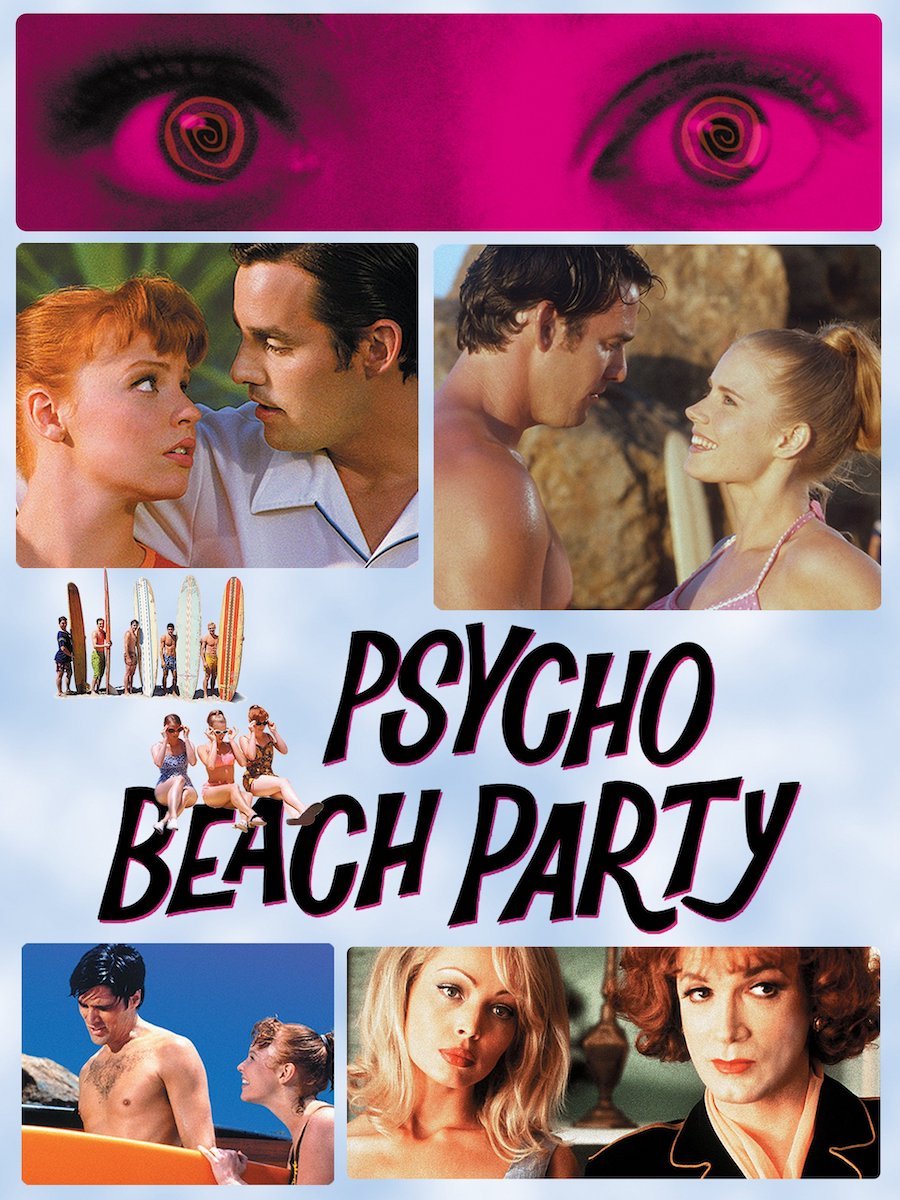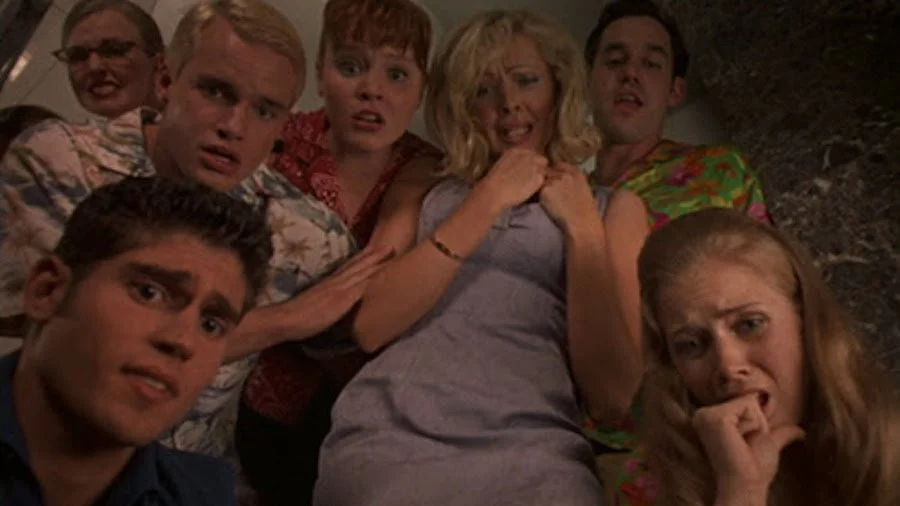PSYCHO BEACH PARTY (2000)
A horror comedy released in 2000 that was adapted from writer Charles Busch’s play which debuted in the late ‘80s that satirizes the safely titillating bounce of the ‘60s beach and clambake films shouldn’t work—but it does. Directed by Robert Lee King (from a script by Busch adapting his own play), PSYCHO BEACH PARTY is an often hilarious deconstruction of gender and sexuality models that are part of that genre’s foundation.
Our heroine is Florence “Chicklet” Forrest (Lauren Ambrose), a Gidget-esque pipsqueak square itching to leave the confines of her domineering, perfection-seeking mom and seemingly boring life to take the next steps into womanhood.
The only thing holding her back? Her bouts of amnesia that have a body count. (I am going to try to go light on any spoilers because I do think this may be one that folks missed and it is well worth a peek.)
Our repressed Florence doesn’t simply blackout. She has a Dissociative Identity Disorder and channels other personalities during these spells.
The main personality that surfaces is a foul-mouthed, sexually aggressive, vengeance-seeking woman named Ann Bowman. Ann and Florence are opposites, as stories like this tend to play out.
Florence is the awkward, gee-golly-whiz counter to Ann, who spends her time demanding men grovel at her feet and planning retribution on anyone she feels slighted her. When Florence “awakens” after one of these episodes, she finds herself rejoining her already-in-progress conversation with no recollection of what’s happened…and usually she’s at a crime scene. It is a clever way to comment on the Madonna-Whore complex, a binary where a woman’s value to men/society is associated with her either being virginal (Madonna) or sexually active (Whore).
Gender politics play heavily in PSYCHO BEACH PARTY’s themes. Each female character we get to know is and/or has experienced the unique burdens of being of that role in society. Florence’s best friend, Berdine (Danni Wheeler), feels cast aside when Florence starts spending her time with the group of surfer guys. She also has a deep appreciation for schlock-horror actress Bettina Barnes (Kimberley Davies) and connects to the feminist subtext of her work.
Marvel Ann (Amy Adams) is Florence’s competition as she develops feelings for amateur psychiatrist-turned-wannabe surfer Starcat (Nicholas Brendon). Adams plays her bimbo-esque, hiding her incredible intelligence and self-awareness. Marvel Ann has an amazing moment where she breaks up with Starcat because she doesn’t feel he is going to meet his potential and instead settle for mediocrity.
Bettina has a similar arc as she is assumed to be a bit of a ditz based on her small voice and appearance (think Jennifer Tilly) but is probably the most capable of the characters we meet.
She’s hiding out on Malibu Beach because she got tired of being mistreated by the studio with whom she’s signed.
Florence’s mom, Ruth (Beth Broderick), is demanding in her pursuit of perfection but she is a single mom in the ‘60s trying to maintain a flawless housewife image. Rhonda (Kathleen Robertson) is Florence’s adversary—a wheelchair-using mean girl that delights in delivering quick, vicious jabs to almost anyone and everyone. The character of Rhonda is the biggest “Fuck You!” to people that demand disabled characters be pitied and connected to a broken but brave story and, as a disabled person exhausted by that trope, I couldn’t love it more.
And that brings us to Captain Monica Stark.
Captain Stark is, without a doubt, my favorite character of the film because she seems to represent everything the film is striving to say. She is the detective following the murders in this town and has a “been there, done that” quality about her. She isn’t a fan of our group of surfers and we discover she has a history with Kanaka (Thomas Gibson), our group’s leader and resident poet.
They were in love and engaged to be married back when they were both cops on the beat, but they were torn apart when her ambition to rise in the ranks to prove herself in the male-dominated field ran counter to Kanaka’s plan for her to focus on being a mom and wife. Stark is played by Charles Busch to perfection by nailing an “above it-all” detective tone and mixing it with wink and nod to the film’s camp influences. Stark and Busch are PSYCHO BEACH PARTY’s beating heart giving each scene life.
The women of PSYCHO BEACH PARTY take gender roles and expectations hilariously to task and the ‘60s beach-film-meets-slasher aesthetic is the perfect backdrop for these bloody yet cheerful act of subversion.







